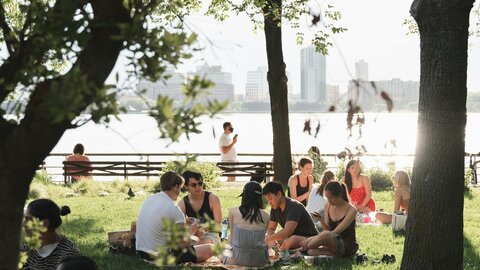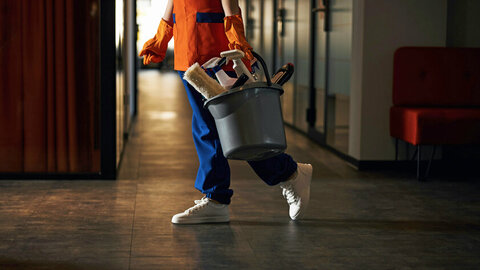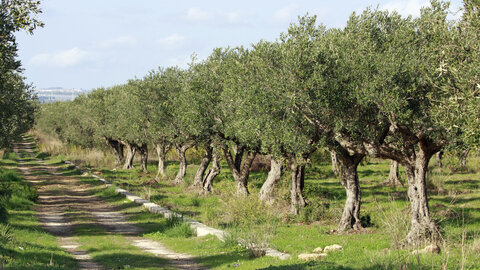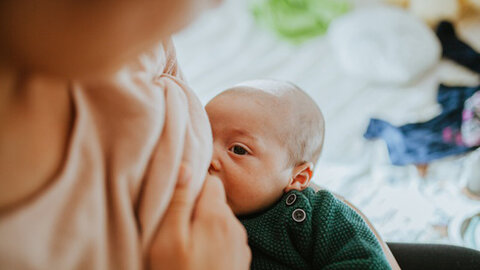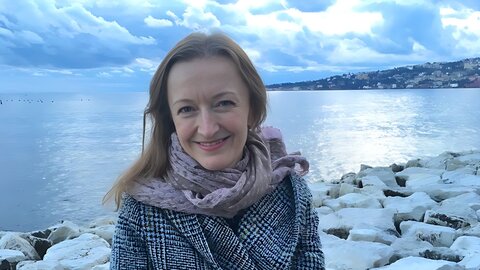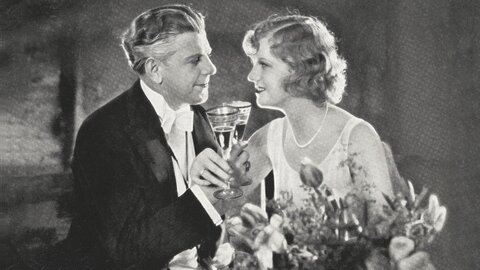How tourists respond to behavioral appeals
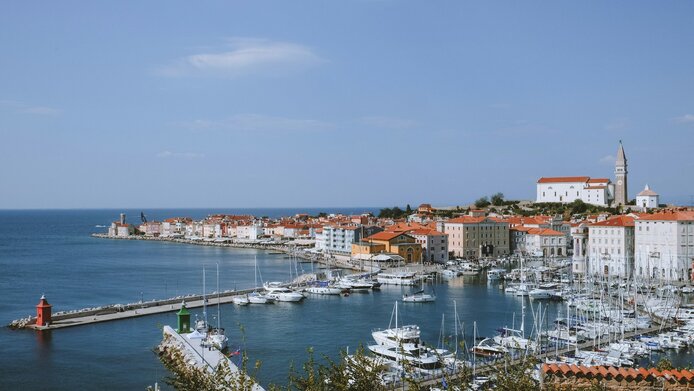
The sticker notice for towels in hotels around the world may well be the mother of all appeals to tourists to behave in a pro-environmental way. This is the simple message: use the towel once more and help us save water and detergent – for the sake of the environment. A bilateral cooperation project between the University of Ljubljana in Slovenia and the Vienna University of Economics and Business, supported by the Austrian Science Fund FWF, investigated the effectiveness of such behavioral appeals on holidaymakers in terms of actual savings made and then compared the results. Composed of tourism and statistics experts, the team conducted a variety of on-site experiments focusing on the issue of food waste. After all, food accounts for almost half of all waste in this sector and thus contributes to the 20 percent of global greenhouse gas emissions attributable to food.
Going without, even on vacation? How can we appeal to tourists to encourage environmentally conscious behavior, and which appeals are most successful? The project "Environmentally Conscious Behavior in Tourism" takes a playful approach to these questions.
Vacations are different from everyday life
According to statistician Bettina Grün from the Vienna University of Economics and Business there are already several studies on the psychological factors that motivate people to behave in an environmentally friendly way in everyday life: “People respond positively to savings appeals that benefit them directly – for example by cutting garbage disposal costs or the use of electricity or water. When it comes to vacations, it is rather the tourism businesses, our cooperation partners, that are motivated by the prospect of savings. For these field studies, we are currently working with 3- and 4-star hotels on the Slovenian coast and in the capital city Ljubljana in order to reach hotel guests directly. We are investigating different groups of travelers, such as families on a vacation by the sea or business travelers,” explains principal investigator Grün.
Up to now, findings on how we behave as tourists away from home have been based on online surveys. This harbors a risk that respondents will give “socially desirable answers”, i.e. answers that they think will be considered praiseworthy, but which may not actually reflect their attitudes. Answers may also be affected by how people would like to see themselves. “This leads to statistical outcomes that are simply not borne out by reality,” says Grün. The team therefore considered it important to record the experimental designs and their effects using concrete physical parameters, such as the weight of discarded food.
Tourism as an environmental factor
Most vacationers are more focused on pleasure-seeking and letting their hair down than on being reasonable and abstemious. Around six billion people a year go on vacation for recreation, sightseeing and a change from everyday life. This makes tourism the fourth largest economic activity in the world, and it is growing by around five percent annually. Many areas attractive to tourists are located in sensitive ecosystems, such as coastal regions, which are ill-equipped to cope with the high consumption of fresh water or demands on waste management. This makes tourism the fifth most polluting industry in the world.
So what would constitute an effective appeal to behave in an environmentally friendly way under the “exceptional” circumstances of vacations? The tourism experts developed various designs. Bettina Grün cites an example of an effective and a not-so-effective appeal. A playful approach with a reward system worked well for families on summer vacation who put together their own meals from a buffet: “We installed special waste bins in the kitchen for leftovers from the plates and weighed them before and during the trial period. The incentive was a stamping system where the whole family would score points for every emptied plate. For the collected stamps they got a small gift at the end of the stay.” As a result, plate waste was reduced by 34 percent.
Another test design called “fat cat” compared the effect of place cards with different messages. One group received a factual message about the burden on the environment created by food waste. Another group was addressed with a humorous message relating to the hotel cat Marko that was getting fatter and fatter. In this case, a survey of guests after their stay showed that they remembered the fat cat and had found it cute. However, there was no measurable reduction here in the amount of plate waste collected. “Our surveys are limited by the fact that the hotels don't want us to bother their guests. This means we have to keep the questions short and the response rate is not very high,” is Bettina Grün’s explanation for the limitations of their fieldwork.
Individual approach
The field trials confirm the theory that playful approaches can achieve changes in behavior in pleasure-seeking contexts. According to Grün, these results also challenge established behavioral theories that assume people's personal convictions to be the main drivers of pro-environmental behavior. Another important lesson from the experiments is that there are no “one size fits all” solutions, but that appeals must be adjusted for different target groups. Families with small children have different “waste patterns” from pensioners or business travelers. Another factor that should not be underestimated is the need for staff training if measures envisaged involve the behavior of staff (e.g. in room cleaning and serving at table).
The team will use the experience gained from the project to improve the individualized research designs. “We haven't yet found a sticker that appeals to everyone, but we have applied for a follow-up project where we want to look at the use of air conditioning at individual room level, which can be evaluated automatically.” Grün considers the continuation of this research effort to be very important, because even small individual savings can make a major contribution to environmental protection given the mass phenomenon that is tourism.
Personal details
Bettina Grün studied business mathematics at the Vienna University of Technology and acquired her professorial qualification in statistics at the JKU Linz. In 2023 she was appointed Associate Professor of Computational Statistics at the Vienna University of Economics and Business where she conducts research on statistical methods for model-based clustering and the development of open-source statistical software. As part of an interdisciplinary team, she is working on the project “Pro-environmental behavior in tourism“, which is set to run until the end of March 2024. The international project receives funding from the Austrian Science Fund FWF and the Slovenian Research and Innovation Agency (ARIS).
Publications
Zhu O. Y., Li H., Grün B., Dolnicar S.: The power of respect for authority and empathy – Leveraging non-cognitive theoretical constructs to trigger environmentally sustainable tourist behavior, in: Annals of Tourism Research 2024
Juvan E., Zhu O. Y., Grün B., Dolnicar S.: On the importance of field studies for testing theory-driven behavioral change interventions in (sustainable) tourism, in: SocArXiv Papers 2023
Juvan E., Grün B., Zabukovec Baruca P., Dolnicar S.: Drivers of plate waste at buffets: A comprehensive conceptual model based on observational data and staff insights, in: Annals of Tourism Research Empirical Insights 2021
Dolnicar S., Grün B., Juvan E.: Reducing the plate waste of families at hotel buffets – A quasi-experimental field study, in: Tourism Management 2020
